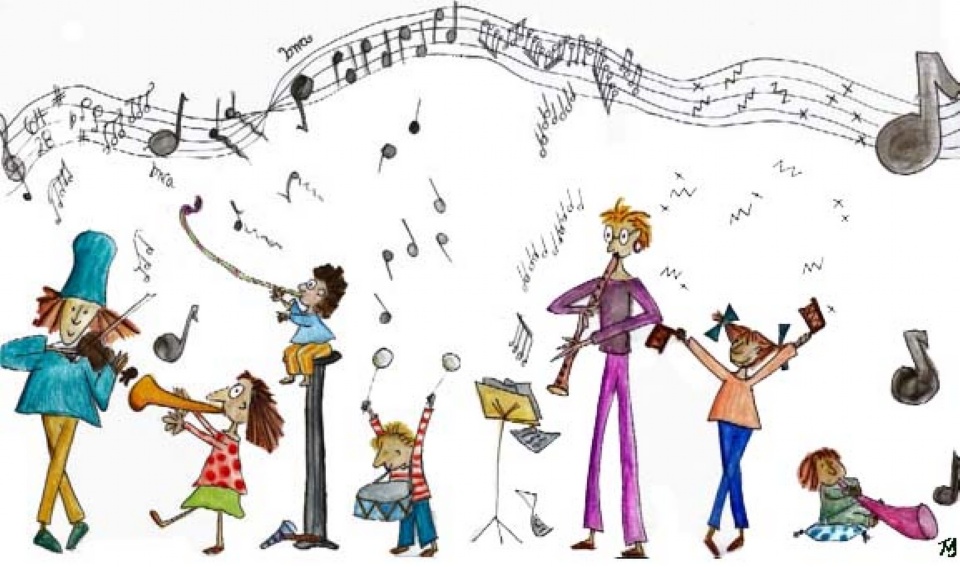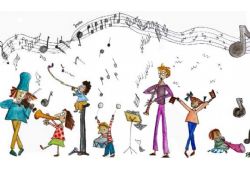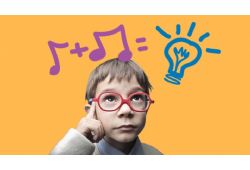Music is an art form and one of the links of our society; it resonates within us. It has the influence to make us yearn, it can uplift the soul and there is a decided transforming power in it.
More than any other art, it carries the possibility of change, even of transcendence. Research on the effects of music on learning has been in progress for decades. My own inquest yielded some fascinating insights on the benefits of learning music for children and youths. I was astounded by the seemingly endless reasons to have your child take music lessons.
Here are but a few;
- Music teaches you perseverance
- Music betters your mathematical ability
- Music improves your reading and comprehension skills
- Music increases your capacity for memory
- Music sharpens your concentration
- Music exposes you to cultural history
- Music learning involves discipline, thus enhances your sense of responsibility
Giovanna; In your opinion, what is the question that most parents ask before enrolling their child in music lessons? How does learning music benefit children?
Angelique; The list is endless, but here are a few ideas; musical environments enhance listening skills, language development, and gross motor skills. There are even studies that say that music lessons enlarge the brain in certain areas by up to 25<>percentage<>, compared to people who have never played an instrument. Education in the arts, at even a very young age, expands their world. It is a gift you give your child for life whether they ever pursue a career in music or not.
G; Have you had any specific cases where you’ve seen music lessons actually benefit a child, who may have been struggling in different areas of life, but improved through music lessons?
A; Absolutely. Music touches us on a vibrational level. I have seen children that were dealing with academic, behavioral, or social difficulties at school, come into my classes and thrive. They found themselves able to focus, learn and create in an environment that interests them; their confidence in themselves improved tremendously within the class. Hopefully with time, this trickles into other parts of their lives.
G; Describe a particular feeling or emotion a student may feel once he or she has learned a piece.
A; So often, and even as a professional, we are faced with a piece of music whereby our first reaction is that we will never be able to play it. One note at a time, I always say until we find one day we can play it. There is no better feeling than that of accomplishment when you achieve what you think is out of your reach. What a great metaphor for life! Not to mention connecting with music on an emotional level, discovering that music can make you feel so many things that are otherwise difficult to express or connect with. Children are naturally connected to the power of music but don’t necessarily identify with it until they become more engaged in it from a learning perspective.
G; How does learning a musical instrument carry through into adulthood, assuming the child continues learning?
A; Growing as a musician requires an enormous amount of discipline. Like everything else in life, the learning never stops. Playing an instrument can also bring relief from stress. It can also calm nerves and help us unwind. It’s great for the brain and the soul. It is a win-win situation with music.
G; What inspired you to teach children?
A; I honestly never saw myself as a teacher until I had children of my own. I had always worked full time as a singer and after I became a mother I was looking for opportunities to be close to home. I took a chance and opened a home studio and started teaching piano and voice lessons. I was so surprised. And what a privilege it was to share my love of music with others as well as the creativity required to reach each student and nurture music in their lives. I have been teaching voice, piano, and an introduction to music for preschoolers from home for five years. Now I travel to teach group lessons across the North Shore, Laval and Montreal.
G; Tell us more about the workshop you developed called Tamajam.
A; Tamajam is a method that I created involving group music workshops for preschoolers. It is a dynamic music workshop for children that aim at nurturing their ability to learn and to plant the seed for a lifetime of music appreciation and cultural awareness. Through song, percussion and creative movement, Tamajam aims at giving kids a great start on their journey.Children will learn about proper breathing technique (critical at any age), body-mind connection and vocal exploration. They are introduced to songs in French, English and Spanish, and are thematically exposed to music that expands their music repertoire.They will learn some fundamentals of music (rhythm and notes names) through exercises played on percussion instruments and even instruments they create on their own. They are also encouraged through creative movement to nurture their listening skills and will discover new music through dance.Most importantly, Tamajam classes are simply fun and exciting. When we wish only the best for our children, the love of an art form is a gift we offer our children that is theirs to keep for a lifetime. I teach these group lessons across the North Shore, Laval and Montreal.
To set up a Tamajam group in your home, pre-school, or daycare contact Angelique at 438-777-7617 or visit www.tamajam.com

 In The Latest Issue:
In The Latest Issue:




 BY:
BY: 



Tweet
Share